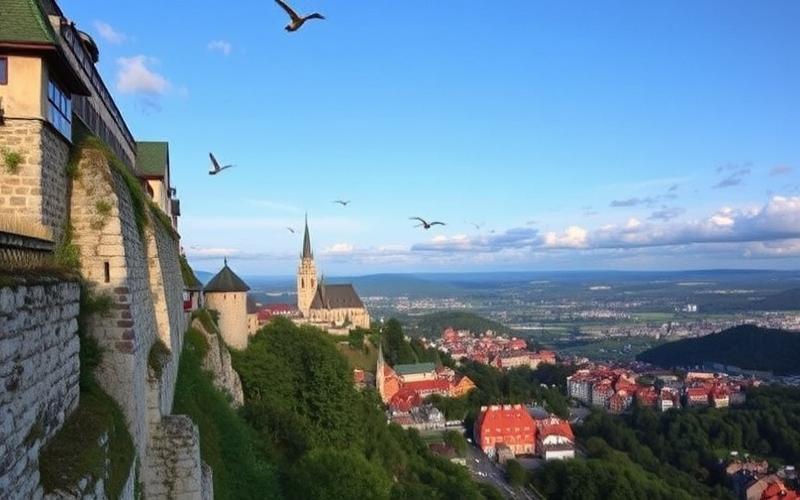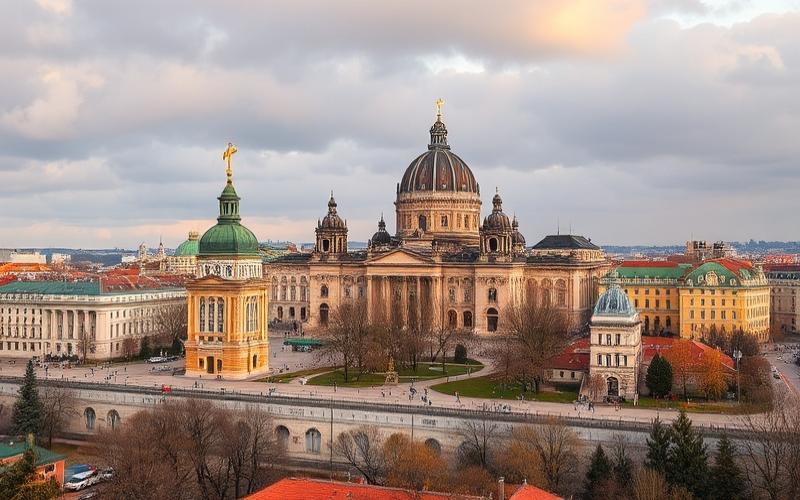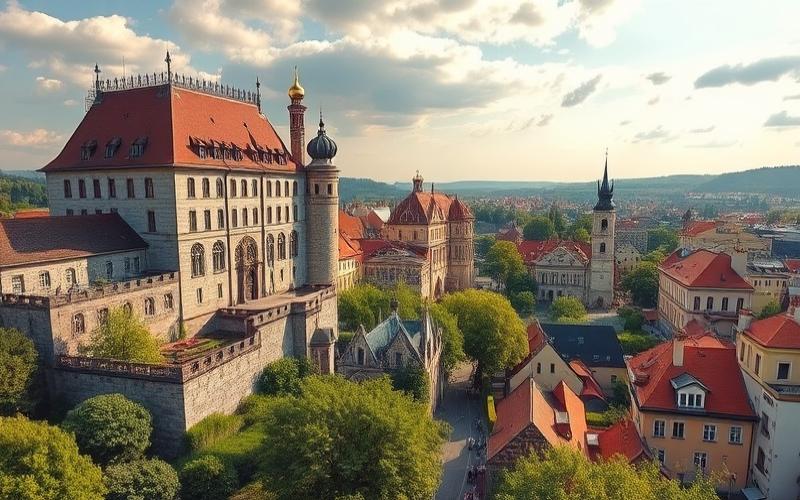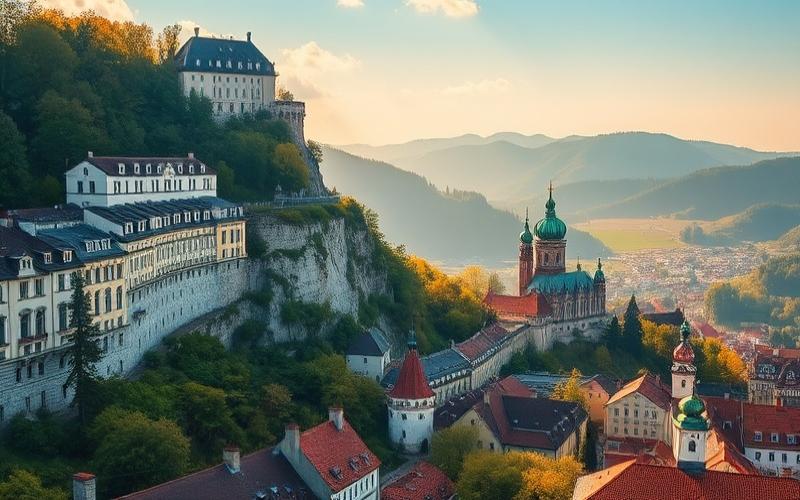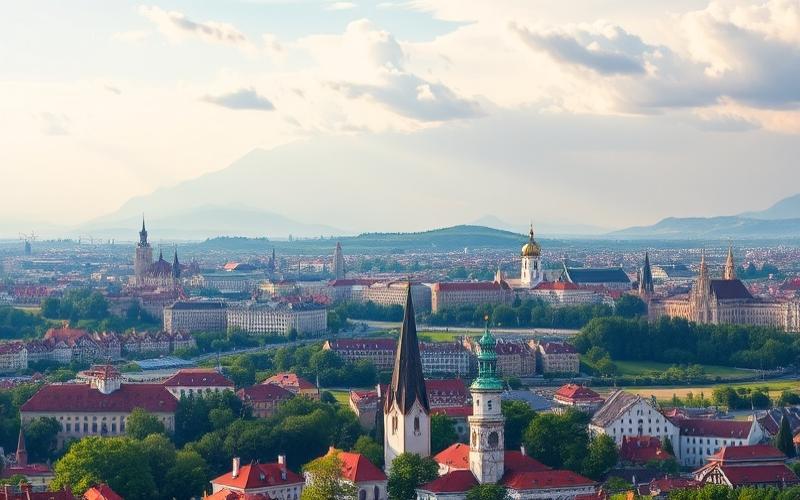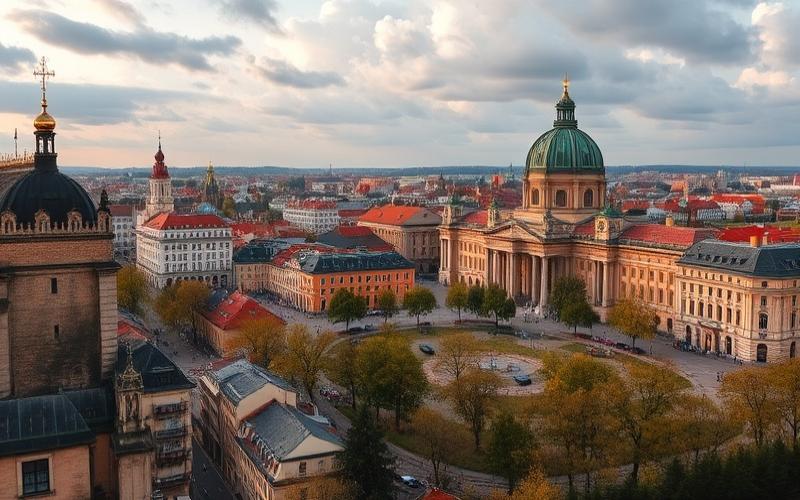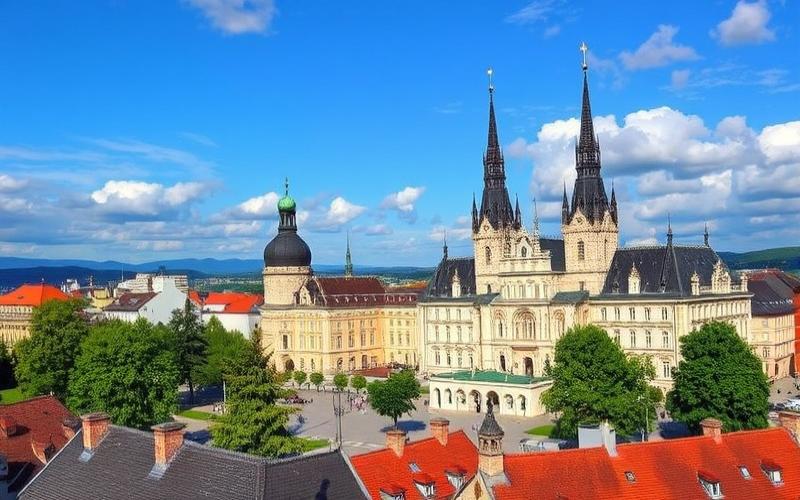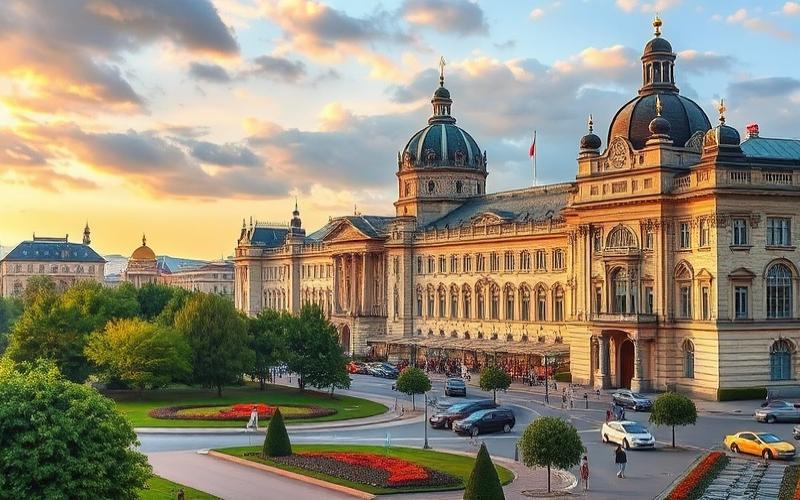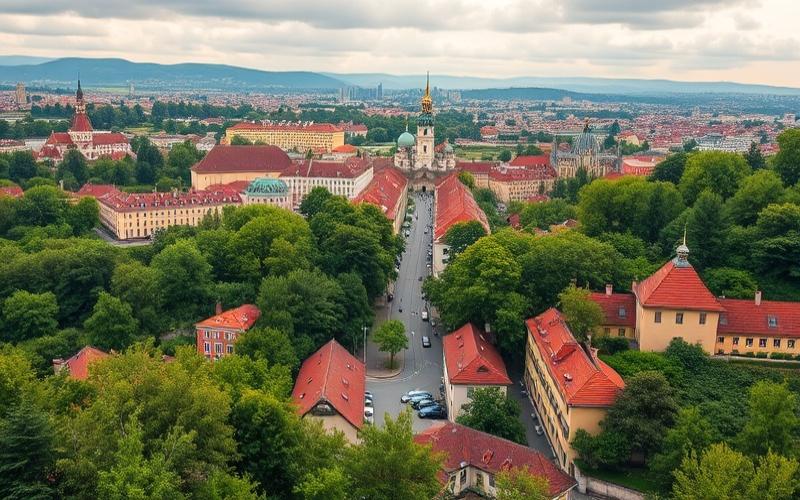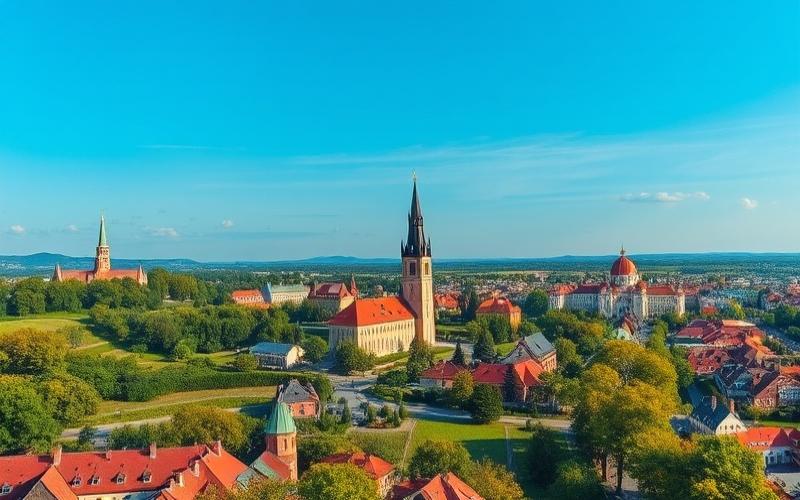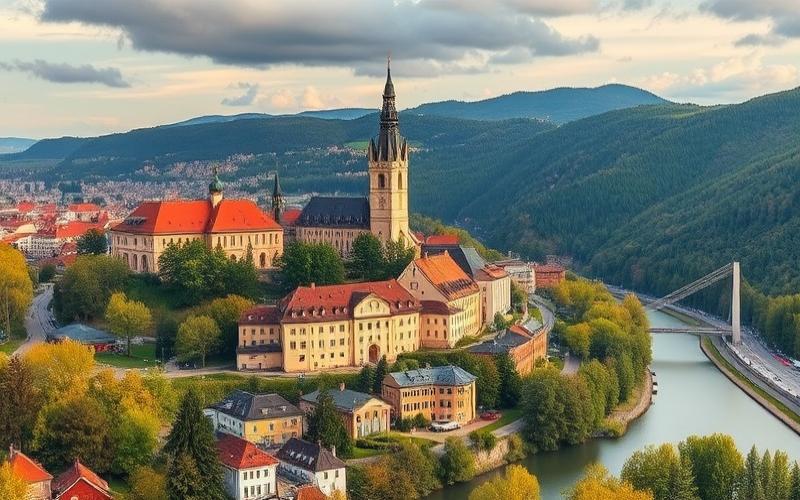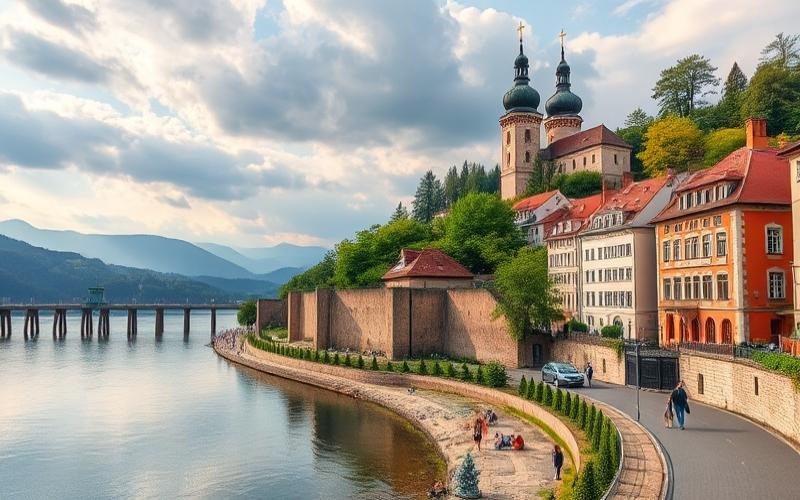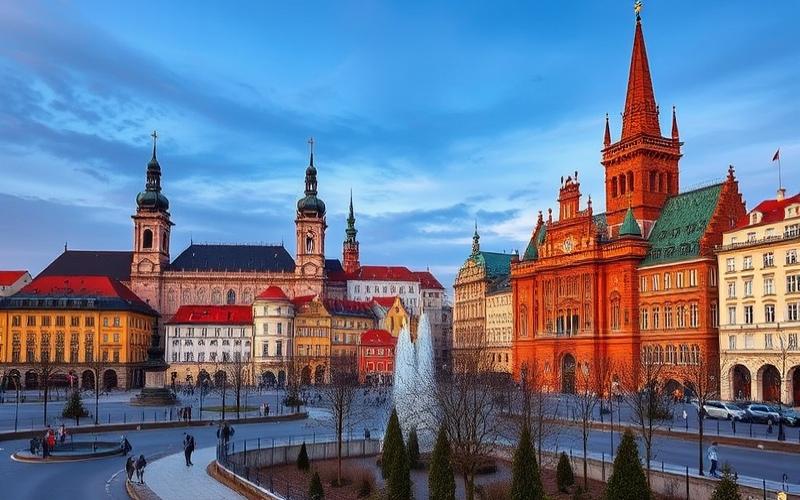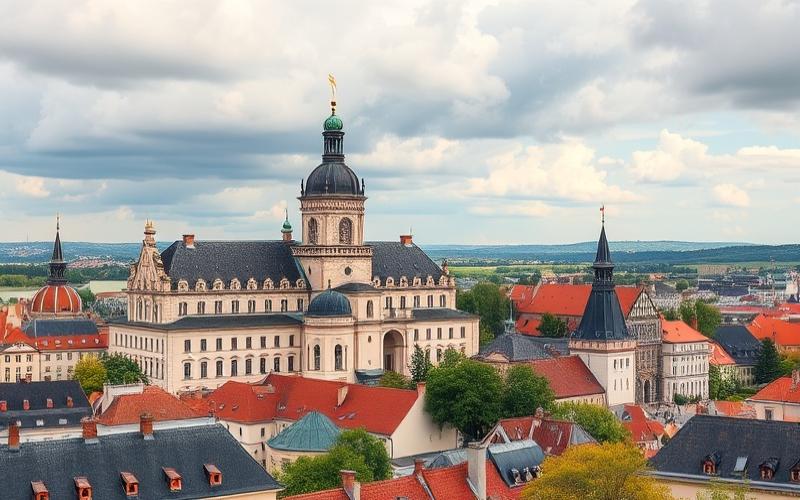
 Published on and written by Cyril Jarnias
Published on and written by Cyril Jarnias
Choosing to settle in Poland involves engaging in a series of administrative procedures that may seem complex at first glance. However, understanding these processes can transform this potentially daunting task into an exciting adventure toward a new life.
From obtaining the required visa to registering for the PESEL, the Polish national identification number, each step is essential for successfully integrating into this dynamic country with its rich heritage.
This article guides you through the main procedures, offering practical tips to navigate the Polish administrative maze with peace of mind, so you can begin your new life with complete peace of mind.
Obtaining Your Visa for Poland: Steps to Follow
Different Types of Visas for Poland
| Visa Type | Length of Stay | Main Purpose |
|---|---|---|
| Schengen Visa (Type C) | Up to 90 days (within 180 days) | Tourism, business, family visit |
| National Visa (Type D) | More than 90 days, up to 1 year | Work, studies, family reunification |
| Airport Transit Visa (Type A) | Transit in airport international zone | Layover without leaving the airport |
Eligibility Criteria by Visa Type
Tourism (Type C)
- Proof of accommodation (hotel reservation or invitation letter)
- Travel itinerary
- Travel medical insurance
- Financial proof (bank statements, pay stubs)
- Valid passport
Work (Type D)
- Signed employment contract
- Work permit or official invitation from employer in Poland
- Proof of housing
- Medical insurance
- Sufficient financial resources
Studies (Type D)
- Acceptance letter from a Polish university or school
- Proof of tuition/registration fee payment
- Medical insurance
- Proof of financial resources
- Proof of accommodation
Family Reunification (Type D)
- Proof of family relationship (marriage certificate, birth certificate)
- Accommodation certificate
- Proof that the family member legally resides in Poland
Visa Application Process
- Fill out the application form
- To be downloaded from the official embassy website or via the e-Konsulat portal (visa D) or VFS Global (visa C).
- Prepare the necessary documents
- Valid passport (at least 6 months)
- Completed and signed application form
- Recent ID photo (according to Polish standards)
- Medical insurance (minimum 30,000 EUR coverage)
- Proof of visa fee payment
- Financial proof (bank statements, income certificates)
- Proof of accommodation or invitation letter
- Cover letter explaining the purpose of the stay
- Round-trip flight ticket or reservation
- Documents specific to the visa type (acceptance letter, employment contract, etc.)
- Schedule an appointment and submit the application
- Mandatory online appointment scheduling (e-Konsulat, VFS Global)
- In-person submission of the file at the competent Polish embassy or consulate based on your place of residence
- Provide biometric data (fingerprints and photo)
Useful Addresses
Embassy of Poland in Paris: 1 rue de Talleyrand, 75007 Paris
Consulate General of Poland in Lyon: 79 rue Crillon, 69006 Lyon
Check territorial jurisdiction before scheduling an appointment.
Processing Times and Fees
| Visa Type | Estimated Processing Time | Main Fees |
|---|---|---|
| Schengen (C) | 10 to 15 business days | €90 adult, €45 child (6-12 years), free under 6 |
| National (D) | 15 to 30 business days | €135 |
- Possible additional service fees (e.g., VFS Global)
- Non-refundable fees, even in case of refusal
Practical Tips
Best time to submit the application: 2 to 3 months before the planned departure date, especially before peak periods (summer, university start).
Tips to avoid common mistakes:
- Check passport validity and photo compliance
- Ensure all documents are translated into Polish or English if necessary
- Prepare originals and copies of all documents
- Do not book non-refundable tickets before obtaining the visa
- Strictly follow the required document list according to the visa type
- Regularly check the embassy or consulate website for updates
Good to Know:
To optimize your visa application for Poland, submit it at least three months before your departure to avoid unexpected delays and ensure all documents are up-to-date and translated into Polish or English.
Finding Housing in Poland: Practical Tips
The main recommended cities to settle in Poland are Warsaw, Krakow, Gdańsk, Wrocław, and Poznań. These cities offer a good balance between economic dynamism, quality of life, cultural life, and international integration. Neighborhoods favored by expatriates include Śródmieście, Mokotów, Wilanów in Warsaw; Stare Miasto and Kazimierz in Krakow; Oliwa and Przymorze in Gdańsk; as well as Stare Miasto (Center) and Krzyki in Wrocław.
Types of Available Housing
- Apartments (studios, 2-bedroom, 3-bedroom, 4-bedroom…)
- Single-family homes (mainly in outskirts or suburbs)
- Shared apartments (popular among students and young professionals)
- Student dormitories (associated with universities)
- Furnished or unfurnished apartments
Some rentals include utilities in the rent, others require them to be paid separately.
Search Platforms
- Otodom
- Gratka
- Morizon
- Pepe Housing (specialized for students and expatriates)
- OLX
- Gumtree
- Facebook groups dedicated to expatriates or students
Steps to Sign a Rental Agreement
- Present an ID and possibly proof of income or solvency.
- Read the contract (umowa najmu) carefully: check the duration, notice period, security deposit amount (usually 1 to 2 months’ rent).
- Sign the contract in the presence of the landlord.
- Conduct the initial inspection and document the property’s condition.
- Pay the security deposit and first month’s rent.
Tips for Viewings and Negotiation
- Visit the property in person and check insulation quality, equipment functionality, and overall condition.
- Inquire about utilities and additional fees (heating, water, electricity, internet).
- Request a rent or utility reduction if the property has defects or if the market favors tenants.
- Prioritize housing near transportation, shops, and universities.
Average Rental Costs
| City | Popular Neighborhoods | Average Monthly Rent (1-2 room apartment) |
|---|---|---|
| Warsaw | Śródmieście, Mokotów | 2,500 – 4,400 PLN (approx. €550 – €950) |
| Krakow | Stare Miasto, Kazimierz | 2,000 – 3,800 PLN (approx. €440 – €820) |
| Gdańsk | Oliwa, Przymorze | 2,000 – 3,800 PLN (approx. €440 – €820) |
| Wrocław | Center, Krzyki | 2,000 – 3,800 PLN (approx. €440 – €820) |
| Poznań | Jeżyce, Grunwald | 1,800 – 3,500 PLN (approx. €400 – €750) |
Neighborhood Recommendations
- To prioritize: Historic centers (Stare Miasto), well-connected residential and university neighborhoods.
- To avoid: Remote neighborhoods with poor transportation, industrial areas, or locations too far from amenities.
Tenant Rights and Responsibilities
- Right to decent housing, protection of the security deposit, and reasonable notice before any termination.
- Obligation to pay rent and utilities on time, maintain the property, and report any damage or issues.
- The landlord must ensure access to public services (water, gas, electricity), perform major repairs, and respect the tenant’s privacy.
Public Services and Utilities
- Subscribe to electricity, gas, water, internet contracts if not included.
- Arrange for meter transfers or open new contracts.
- Check for adequate heating (central, gas, electric depending on the property).
- Ensure property tax and condominium maintenance fees are properly allocated according to the contract.
Finding housing in Poland is made easier by the diversity of offers, the presence of specialized platforms, and a relatively affordable cost of living in major cities.
Good to Know:
To find housing in Poland, use platforms like Otodom and OLX, prioritize Poznań or Wrocław for their affordability, and be informed about rental rights such as the need for home insurance; always check the status of public services before signing a lease.
Renewing Your Residence Permit: Procedures to Know
| Permit Category | Validity Period | Main Purpose |
|---|---|---|
| Temporary Residence Permit | Up to 3 years, renewable | Work, studies, family, business |
| Permanent Residence Permit | Indefinite | Long-term settlement |
| EU Long-Term Residence Permit | Indefinite duration (5-year card) | Stable residence, expanded rights |
Renewal Process
Respect the deadline: It is advisable to submit the renewal application at least 30 days before the current permit expires. For some permits, it is possible to apply up to the last day of validity, but it is strongly recommended to plan ahead to avoid any interruption of stay.
Required documents:
- Valid passport
- Completed application form
- Proof of residence (rental contract or accommodation certificate)
- Proof of financial means
- Health insurance
- Recent ID photos
- Specific documents according to the purpose of stay (employment contract, proof of studies, family documents, etc.)
Steps to Submit the Application
- Prepare all original documents and copies.
- Schedule an appointment at the competent Foreigners’ Office or use the online platform if available.
- Submit the application in person (mandatory in most cases for the first application, sometimes accepted online for renewal).
- Present the documents during the appointment and answer any questions from the officer.
Tips for a Potential Interview
- Bring all original documents and copies.
- Prepare clear answers about your stay plans, professional and family situation.
- Check the consistency of information across documents.
- Be ready to explain any periods of absence from Polish territory.
Associated Fees
- Temporary permit: approximately 340 PLN for application, 50 PLN for the residence card.
- Permanent permit: approximately 640 PLN for application, 50 PLN for the residence card.
- EU long-term permit: approximately 640 PLN for application, 50 PLN for the residence card.
Typical Processing Time
- Temporary permit: generally 1 to 3 months.
- Permanent permit: 3 to 6 months.
- EU long-term permit: 3 to 6 months.
Appeal in Case of Refusal
- Request for reconsideration from the competent authority (voivode).
- Administrative appeal to the Regional Administrative Court.
- Seek assistance from an immigration lawyer.
- Prepare additional documents to support the appeal.
Key Takeaways
Plan the renewal application ahead to avoid any interruption of residence rights. Check the official document list and prepare copies and originals. In case of refusal, use legal appeal channels and consult a professional if necessary.
Good to Know:
It is crucial to submit a residence permit renewal application at least 30 days before expiration, preparing documents like your passport and proof of residence; fees apply and processing takes about 60 days. In case of refusal, one option is to appeal the decision within 14 days of notification.
Understanding Essential Administrative Procedures for Living in Poland
Essential administrative procedures for settling in Poland
1. Residence Permit and Registration of Stay
For a stay longer than 3 months, you must declare your residence at the local city hall (Urząd Miasta) and obtain a temporary residence certificate (Zameldowanie czasowe).
Then, it is mandatory to register your stay at the voivodeship office (Urzad Wojewodzki) of your place of residence.
Required Documents:
- Completed and signed registration form
- Rental agreement or proof of housing
- Valid ID (passport or national ID card)
- Family record book or marriage certificate (for families)
- Proof of purpose of stay and stable income (employment contract, university enrollment, etc.)
- Proof of health insurance (see below)
Estimated processing time: a few days to several weeks depending on the region and time of year
For EU citizens: no visa or work permit needed
2. Registration in the Polish National Registry (PESEL Number)
The PESEL number (personal identifier) facilitates access to public, banking, and health services.
It can be requested when registering your residence at the city hall.
Required Documents:
- Application form
- ID
- Proof of residence
3. Health Insurance
It is mandatory to have valid health insurance (Polish social security, European Health Insurance Card, or private insurance).
To benefit from Polish social security, you generally need to be employed or voluntarily register with the Narodowy Fundusz Zdrowia (NFZ).
4. Vehicle Registration
| Step | Required Documents | Estimated Time | Relevant Authority |
|---|---|---|---|
| Purchase/entry declaration | Registration certificate, proof of purchase, ID, proof of insurance, technical inspection | 1 to 2 weeks | Starostwo Powiatowe (district prefecture) |
| Final registration | Complete file + tax payment | A few days to 2 weeks | Starostwo Powiatowe |
It is mandatory to insure the vehicle and undergo a technical inspection if the vehicle is over 3 years old.
5. Opening a Bank Account
Generally Required Documents:
- ID
- Proof of residence or PESEL number (sometimes optional but recommended)
- Proof of income or professional activity depending on the bank
Processing time: account opening possible within 24 to 72 hours depending on the bank
6. Tax Obligations for Expatriates
Anyone residing in Poland for more than 183 days per year or having their center of economic interests in the country is considered a tax resident.
It is necessary to obtain a NIP number (tax identification number) to declare income or engage in independent activity.
Tax treaties between France and Poland avoid double taxation.
Remember to inform the French pension fund of your new address if you receive a pension.
Practical Tips
- Use the Trusted Profile online service to speed up and simplify many administrative procedures (declarations, certificate requests, etc.)
- Plan for certified translations of all civil status documents
- Appear in person for stay registration, unless you have an administrative electronic signature
- Schedule appointments online or by phone with authorities to avoid waiting
Government Offices to Contact
- Urząd Miasta (district city hall): for residence certificate and PESEL
- Urzad Wojewodzki (voivodeship office): for stay registration
- Starostwo Powiatowe: for vehicle registration
- Narodowy Fundusz Zdrowia (NFZ): for health insurance
Reliable Online Resources
- Polish public service: https://www.gov.pl
- Immigration portal: https://migracje.gov.pl
- Tax portal: https://www.podatki.gov.pl
- Trusted Profile: https://www.gov.pl/web/gov/zaloz-konto-w-pz
Tip: Apply for the PESEL upon arrival to simplify all subsequent procedures.
Tip: To avoid trips, prioritize online services whenever possible.
Good to Know:
To avoid delays, start by obtaining your residence permit then register with the Polish national registry; also remember to subscribe to health insurance, and schedule your appointment at the tax office for your tax obligations. Use your bank’s online services to open an account more quickly and refer to the Polish government website guide for vehicle registration.
Disclaimer: The information provided on this website is for informational purposes only and does not constitute financial, legal, or professional advice. We encourage you to consult qualified experts before making any investment, real estate, or expatriation decisions. Although we strive to maintain up-to-date and accurate information, we do not guarantee the completeness, accuracy, or timeliness of the proposed content. As investment and expatriation involve risks, we disclaim any liability for potential losses or damages arising from the use of this site. Your use of this site confirms your acceptance of these terms and your understanding of the associated risks.

